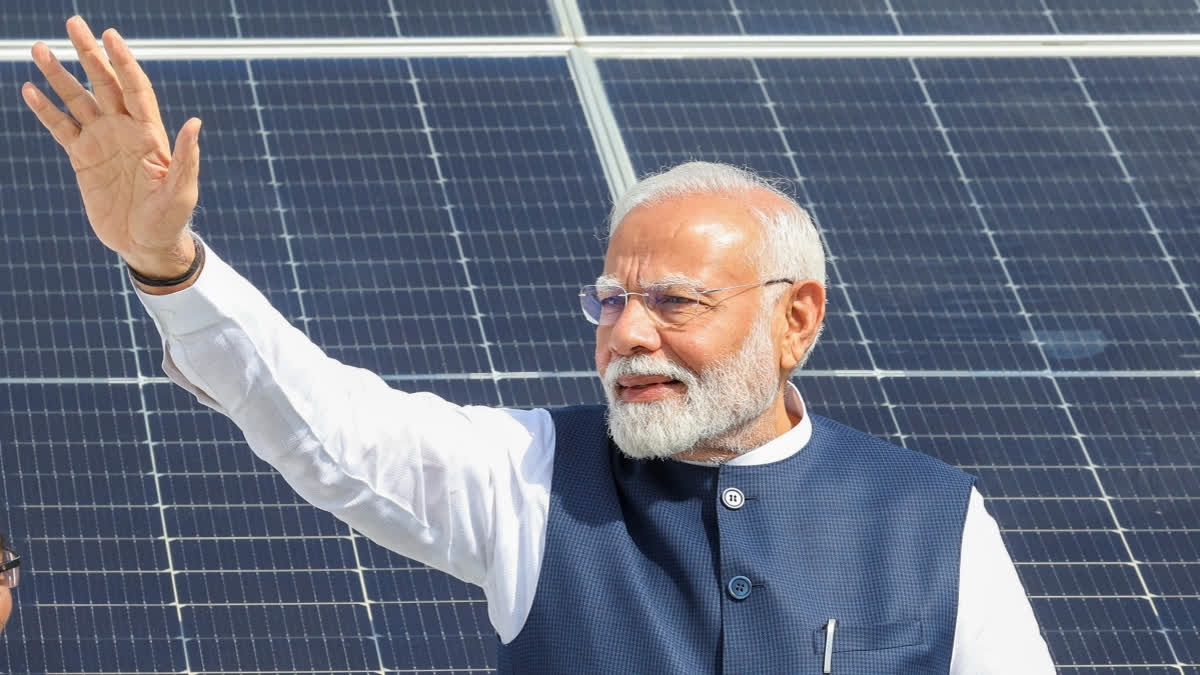New Delhi:The report of the high-level committee on 'one nation, one election' was accepted by the Union Cabinet on Wednesday.
This was announced by Union Railways and IB Minister Ashwini Vaishnaw during a media briefing after the Cabinet meeting chaired by Prime Minister Narendra Modi. The panel headed by former president Ram Nath Kovind submitted the report in March ahead of the announcement of Lok Sabha elections.
"There is a widespread support for simulternous polls. It will be implemented in two phases. In the first-phase, we will try to conduct the Lok Sabha and State Assembly polls and in the second phase, we will try to hold local bodies polls. The decision was taken unanimoulsy by the NDA government. We will form an implementation group," Vaishnav said.
Placing the report before the Cabinet was a part of the law ministry's 110-day agenda. The high-level committee had recommended simultaneous elections for the Lok Sabha and state Assemblies as the first step followed by synchronised local body polls within 100 days.
The panel had also proposed setting up of an 'Implementation Group' to look into the execution of the recommendations made by the committee. Simultaneous polls will help save resources, spur development and social cohesion, deepen "foundations of democratic rubric" and help realise the aspirations of "India, that is Bharat", the panel had said.
The panel also recommended the preparation of a common electoral roll and voter ID cards by the Election Commission of India (ECI) in consultation with state election authorities. At present, the ECI is responsible for the Lok Sabha and Assembly polls, while the local body polls for municipalities and panchayats are managed by state election commissions.
The panel recommended as many as 18 constitutional amendments, most of which will not need ratification by state Assemblies. However, these would require certain Constitution amendment Bills that would need to be passed by Parliament.
Some proposed changes regarding the single electoral roll and single voter ID card would need ratification by at least half of the states. Separately, the Law Commission is also likely to come up soon with its own report on simultaneous polls, of which Prime Minister Narendra Modi has been a strong votary.
Sources said that the Law Commission is likely to recommend holding simultaneous polls for all three tiers of the government -- the Lok Sabha, state Assemblies and local bodies like municipalities and panchayats -- starting with 2029 and a provision for a unity government in cases like a hung house.
Congress chief Mallikarjun Kharge lashed out at the Narendra Modi government saying one nation one election cannot work in a democracy. Speaking to reporters here, Kharge, who is also the Leader of the Opposition in the Rajya Sabha, said, "We don't stand with this. One Nation One Election cannot work in a democracy. Elections need to be held as and when required if we want our democracy to survive."
AIMIM chief and Hyderabad MP Asaduddin Owaisi said frequent and periodic elections improve democratic accountability. "I have consistently opposed One Nation One Elections because it is a solution in search of a problem. It destroys federalism and compromises democracy, which are part of the basic structure of the constitution.
"Multiple elections aren’t a problem for anyone except Modi & Shah. Just because they have a compulsive need to campaign in even municipal & local body elections does not mean that we need simultaneous polls. Frequent & periodic elections improve democratic accountability," Owaisi said in a post on X.
